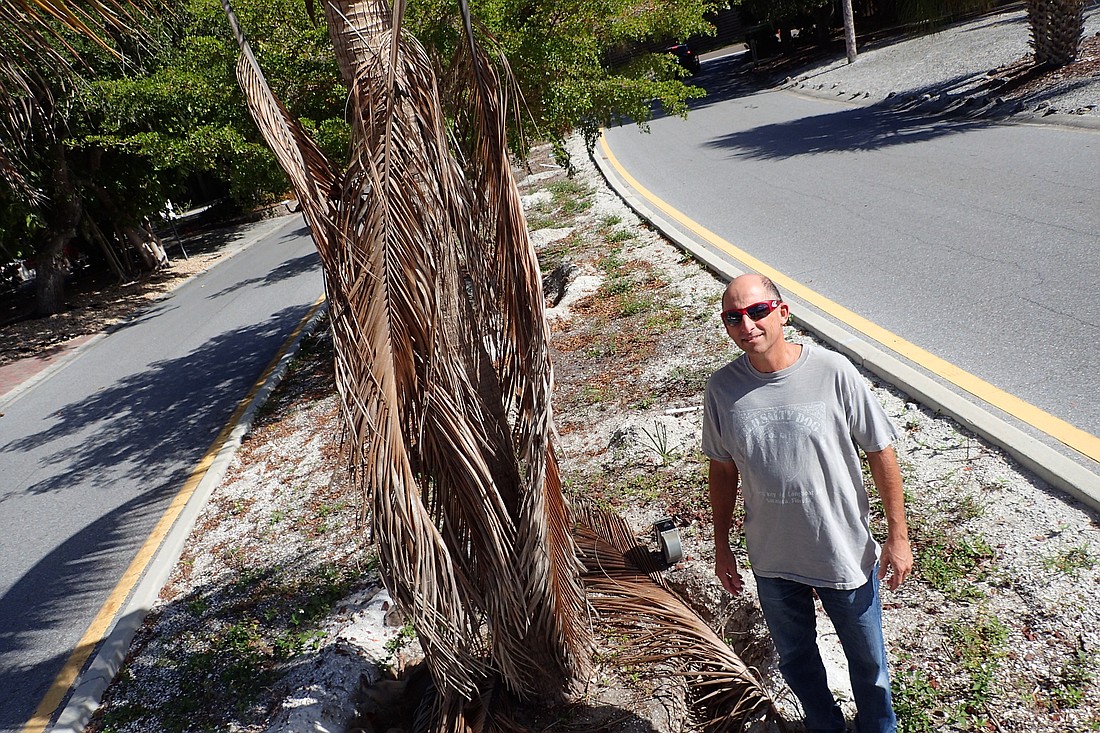- November 24, 2024
-
-
Loading

Loading

The Siesta Isles Association will appeal Sarasota County's decision to stop work on a landscaping project at its Dec. 8 meeting. The project, which would have installed ten royal palms and other Florida Friendly plants at two of its five entrances, was stopped for lack of a tree permit, required to remove or plant trees in a public right of way.
According to Siesta Isles Association President Tony Romanus, the project was stopped the same day landscapers broke ground.
“The day we started,” said Romanus, “it started to unravel.”
The project, which was reviewed by the University of Florida Institute of Food and Agricultural Sciences, would have removed or relocated two coconut palms, four black olive trees, a date palm and a cabbage palm, and replaced them with 10 royal palms. The idea, Romanus said, is to create consistently beautified entrances to Siesta Isles, and to do so with Florida Friendly plants. Though it was found to be Florida Friendly, code enforcement stopped work because the changes would have been made in a public right of way.
Siesta Isles, a 298-lot subdivision nestled between Midnight Pass Road and Beach Road, won a Neighborhood Grant for approximately a quarter of the cost of the landscaping project and hopes to win a second grant to cover, in all, half the total cost.
Wilma Holley, Florida Friendly Landscaping program specialist with the UF-IFAS extension, said that in order to win the Neighborhood Grant the plan required a Florida Friendly design. She said the Royal Palms fit that design and the plan overall would result in reduced water usage because of its use of micro-irrigation and appropriate mulching techniques.
County ordinances only allow the removal of trees from a public right of way, via a tree permit, if the trees are damaged, diseased, or pose a navigational or safety hazard. In those circumstances, according to a memo from County Administrator Tom Harmer’s office, the board can grant a permit. Rather than worry about whether the association's project would satisfy those requirements, Romanus is hopeful commissioners will determine a tree permit isn't required upon hearing the association's appeal.
If county commissioners decide not to grant that appeal, Romanus said, the association will go back to the drawing board. He added that the project seemed to energize his membership, which has increased this year. Hundreds of volunteer hours had already been committed to match funds awarded as part of the Neighborhood Grant in August.
“All we’re trying to do is make this better,” he said, “and try to make it more Florida Friendly.”